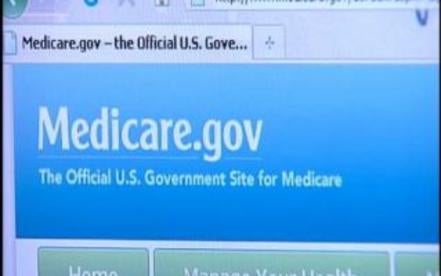More than a year ago, the U.S. Centers for Medicare & Medicaid Services (CMS) proposed significant regulatory changes to the Medicare Advantage (MA) and Part D Programs, many of which were the subject of significant controversy. With the issuance of its February 12, 2015 final rule (2015 Final Rule), CMS has now finalized or withdrawn all of the proposals set forth in its January 10, 2014 proposed rule. The provisions in the 2015 Final Rule will be effective for contract year (CY) 2016, so MA Organizations (MAOs) and Part D Plan Sponsors will have a few months to undertake their strategic analyses and determine which contracts may require modification, the system updates that should be confirmed with vendors, and other operational considerations as part of CY 2016 preparations.
Multi-Phase Rulemaking Process Results in Many Withdrawn Proposals
CMS initially finalized or withdrew numerous proposals in its May 23, 2014 final rule. Among the controversial proposals withdrawn were the provisions to limit sponsors of stand-alone Prescription Drug Plans to only two plans per region, to codify an interpretation of the Part D “non-interference” clause, to impose new requirements for preferred pharmacy networks and to modify criteria for the so-called “protected classes” of Part D drugs. CMS has indicated that one or more of these issues may reappear in future rulemaking.
Through the 2015 Final Rule, CMS has withdrawn several proposals for which final action was deferred in May 2014. For example, CMS is not finalizing the proposal to terminate contracts under which an MAO offers Medicare Advantage-Prescription Drug (MA-PD) Plans for failure to achieve, over three consecutive years, three-star ratings for both Part C and Part D Quality Star Ratings. (This proposal and its withdrawal has no effect on CMS’s existing authority to terminate such contracts for failure to achieve, over three consecutive years, three-star ratings for Part C Quality Star Ratings or three-star ratings for Part D Quality Star Ratings). CMS also has elected not to finalize its proposal prohibiting pharmacies that are related parties of Part D Plan Sponsors from waiving cost-sharing obligations for members enrolled in the related party’s Part D Plans. Although CMS did not finalize its proposal to require MAOs and Part D Plan Sponsors (Sponsors) to hire independent auditors to conduct program audits, CMS is moving forward with its proposal to require Sponsors to hire independent auditors to conduct validation audits to determine whether previously identified deficiencies have been corrected.
Varying Effective Dates for Regulatory Changes
Although many proposals finalized in May 2014 applied to CY 2015, CMS delayed until January 1, 2016 the applicability of several finalized policies, such as the modified definition of the Part D “negotiated price” and the requirement that it include all price concessions from network pharmacies (except contingent amounts that cannot reasonably be determined at the point of sale). Part D Plan Sponsors may want to confirm that their pharmacy benefit management (PBM) contracts—and PBM systems, policies and procedures—properly account for this regulatory change. Similarly, Part D Plan Sponsors may want to confirm that their PBM contracts and PBM systems are prepared to comply with the existing pricing standard requirements that apply to maximum allowable cost (MAC) pricing standards beginning January 1, 2016.
The 2015 Final Rule finalizes a number of regulatory changes that also will apply in CY 2016 and therefore require some advance planning. Examples include the following:
-
Part D Plan Sponsors might confer with their PBMs to determine whether modifications to contracts and/or claims adjudication systems are appropriate to account for the long-term care (LTC) pharmacy requirements, including the prohibition on payment arrangements that penalize “more efficient” LTC dispensing techniques.
-
MAOs offering MA-PD Plans may consider reaching out to their PBMs to confirm the preparation and implementation of coordinated policies and procedures so that the MAO can “coordinate all benefits administered by plan” for prescription drugs among Medicare Parts A, B and D under the new 42 C.F.R. § 422.112(b)(7).
-
Part D Plan Sponsors and their vendors will need to plan for distribution of the new Part D Annual Notices of Changes, which must be received by enrollees at least 15 days prior to the annual coordinated election period. CMS in prior years has levied civil money penalties on numerous Sponsors that have failed to deliver timely and/or accurate Annual Notices of Change.
-
CMS has removed the reference to “extraordinary circumstances” from the definition of “urgent services,” thus making MAOs financially responsible for urgent services furnished by out-of-network providers in non-extraordinary circumstances but for which the MAOs’ provider networks are temporarily unavailable or inaccessible. MAOs may consider evaluating the scope of their provider networks, including service hours of contracted providers and availability of urgent care facilities, as a result of this new requirement.
-
Sponsors are required to have in place business continuity plans that “plan to restore essential functions within 72 hours after any of the essential functions fail or otherwise stop functioning as usual.” Sponsors that contract with administrative services providers, such as PBMs or call-center vendors, for one or more of these essential functions should assess the applicable contracts, policies and procedures, and business continuity plans of these vendors to ensure that the Sponsors will be able to satisfy CMS’s new standards.
Later this week, CMS will issue the Advance Notice of Methodological Changes for Contract Year 2016 MA Capitation Rates, Part C and Part D Payment Policies, and is expected to issue the CY 2016 draft call letter as well. These draft guidance documents may contain proposals that further implement some of these new requirements or address some of the issues for which CMS chose not to finalize a January 2014 proposal. CMS has indicated, for example, that it may consider access requirements for preferred pharmacy networks based on studies CMS conducted in 2014, and include proposals in the draft call letter.




 />i
/>i
